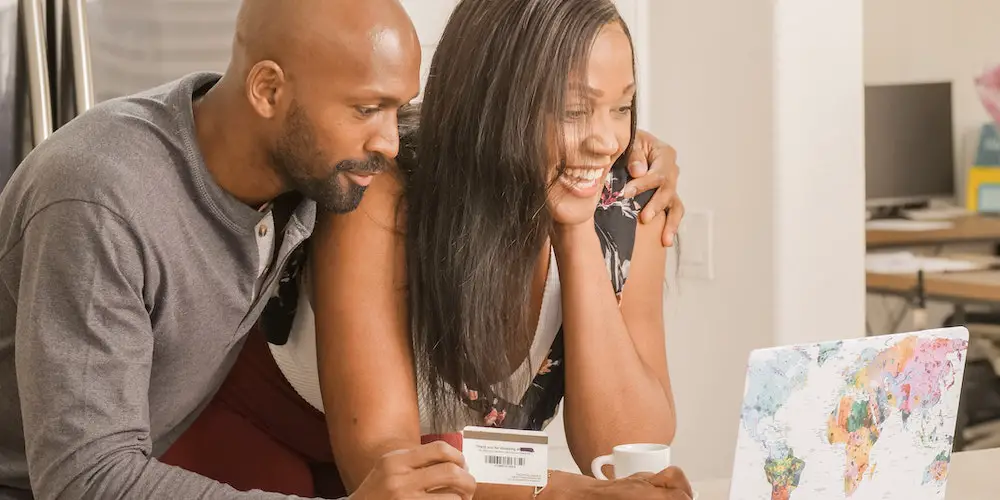
Are you looking for key communication skills for a healthy relationship? If your answer to this question is yes, then you are at the right place.
In any relationship, effective communication is the key to success. It lays the foundation for understanding, empathy, and connection between partners. When couples possess strong communication skills, they can navigate challenges, express their needs, and build a deeper bond. In this article, we will explore the 10 essential communication skills that contribute to a healthy relationship.
Key Communication Skills for a Healthy Relationship
Here are the 10 key communication skills for a healthy relationship you should know.
Active Listening: The Power of Hearing and Understanding

Active listening is a fundamental communication skill that involves fully engaging with your partner and giving them your undivided attention. It goes beyond just hearing their words; it requires understanding their perspective and feelings.
When you actively listen, you provide a safe space for your partner to express themselves and feel heard. This skill involves maintaining eye contact, nodding to show understanding, and avoiding interrupting.
Additionally, reflective listening can be beneficial, where you paraphrase what your partner said to ensure you understood correctly. Active listening strengthens the connection between partners and fosters empathy and understanding.
Non-Verbal Communication: Beyond Words

Communication is not limited to spoken words alone; non-verbal cues also play a significant role in conveying messages. Non-verbal communication includes body language, facial expressions, gestures, and tone of voice.
These cues often carry more meaning than the words themselves. By being aware of non-verbal signals, you can gain a deeper understanding of your partner’s emotions and intentions.
It is essential to pay attention to your own non-verbal communication as well, as it can impact how your message is received. Maintaining open body language, making appropriate gestures, and matching your tone with the intended message can enhance the effectiveness of your communication.
Empathy: Putting Yourself in Their Shoes
Empathy is the ability to understand and share the feelings of another person. In a relationship, empathy allows you to connect with your partner on a deeper level and respond to their emotions with compassion.
By putting yourself in their shoes, you can better understand their perspective and validate their experiences. Cultivating empathy requires active listening and paying attention to verbal and non-verbal cues.
It involves acknowledging your partner’s emotions, showing understanding, and offering support. Empathy fosters a sense of safety and trust in the relationship, creating a strong foundation for effective communication.
Clarity and Directness: Say What You Mean
Clarity and directness are essential aspects of effective communication. Being clear means expressing your thoughts, feelings, and needs in a concise and understandable manner.
It involves using specific and straightforward language to convey your message accurately. Avoid using ambiguous or vague terms that can lead to misunderstandings. Directness, on the other hand, means expressing yourself openly and honestly without beating around the bush.
When you say what you mean directly, you provide your partner with the information they need to understand you better. Clarity and directness promote transparency and minimize miscommunication in a relationship.
Openness and Honesty: Building Trust
Trust is the foundation of any healthy relationship, and openness and honesty are crucial for its development and maintenance.
Openness means being willing to share your thoughts, feelings, fears, and vulnerabilities with your partner. It involves creating an environment where both partners feel safe and accepted. Honesty, on the other hand, means being truthful and sincere in your communication.
It means expressing yourself authentically and avoiding deception or manipulation. When partners are open and honest with each other, trust is strengthened, and the relationship can flourish.
Conflict Resolution: Finding Common Ground

Conflicts are inevitable in any relationship, but how they are resolved can make a significant difference in the health of the partnership. Effective communication skills are vital for navigating conflicts and finding mutually agreeable solutions.
Conflict resolution requires active listening to understand each other’s perspectives and needs. It involves expressing your own viewpoint without attacking or criticizing the other person.
Seeking compromises and finding common ground are essential for resolving conflicts in a way that honors both partners. By focusing on finding solutions rather than escalating tensions, conflicts can become opportunities for growth and deeper understanding.
Positive Reinforcement: The Power of Appreciation
Expressing appreciation and gratitude is a powerful communication skill that can positively impact a relationship. It involves acknowledging and valuing your partner’s efforts, qualities, and contributions.
Regularly expressing gratitude not only makes your partner feel appreciated but also strengthens the emotional bond between you. Simple acts of appreciation, such as saying “thank you” or leaving a loving note, can go a long way in creating a positive and supportive atmosphere in the relationship.
Positive reinforcement enhances overall communication and reinforces behaviors that contribute to a healthy and thriving partnership.
Respectful Disagreements: Accepting Differences
In any relationship, differences in opinions and preferences are inevitable. Respectful disagreements involve accepting and respecting these differences without belittling or dismissing each other’s viewpoints.
Instead of trying to change your partner’s mind, focus on understanding their perspective and finding common ground. Embrace the diversity that exists within your relationship, as it can bring richness and new perspectives.
Respecting each other’s differences fosters mutual growth and understanding, and it strengthens overall communication and connection.
Timing and Tone: The Art of Delivery
The timing and tone in which a message is delivered can significantly impact its reception. Choosing the right moment to communicate and using an appropriate tone can enhance the effectiveness of your message.
Timing is crucial because bringing up sensitive or important topics when your partner is already stressed or preoccupied may hinder effective communication. It is important to find a time when both partners are calm and receptive.
Additionally, using an appropriate tone conveys your message more effectively. Avoid using an aggressive or condescending tone, as it can escalate conflicts. Instead, aim for a respectful and compassionate delivery that encourages openness and understanding.
Effective Non-Defensive Communication: Staying Calm
Effective communication involves staying calm and non-defensive, especially in challenging or confrontational situations.
Non-defensive communication requires managing your emotions and responding thoughtfully rather than impulsively reacting.
It involves active listening, acknowledging your partner’s perspective, and expressing yourself without becoming defensive or aggressive. Staying calm allows you to approach conflicts with a clear mind and find constructive solutions. Non-defensive communication fosters understanding, trust, and cooperation in the relationship.
Conclusion
Communication is the lifeline of a healthy relationship. By mastering the 10 key communication skills discussed in this article—active listening, non-verbal communication, empathy, clarity and directness, openness and honesty, conflict resolution, positive reinforcement, respectful disagreements, timing and tone, and effective non-defensive communication—you can cultivate a deeper connection with your partner, resolve conflicts constructively, and build a strong foundation of trust and understanding. Remember, effective communication is a journey that requires continuous effort and practice, but the rewards it brings to your relationship are immeasurable.
Frequently Asked Questions
Q: How can I improve my communication skills in a relationship?
A: Improving communication skills in a relationship requires practice and conscious effort. Some strategies include active listening, expressing yourself clearly and directly, being open and honest, and seeking professional guidance if needed.
Q: What are the consequences of poor communication in a relationship?
A: Poor communication can lead to misunderstandings, increased conflicts, feelings of resentment, and a breakdown of trust and intimacy. It can also hinder problem-solving and prevent partners from meeting each other’s needs effectively.
Q: How can active listening benefit my relationship?
A: Active listening allows you to understand your partner’s needs, concerns, and emotions better. It promotes empathy, validates your partner’s experiences, and fosters a deeper connection and understanding between you and your partner.
Q: Can non-verbal communication impact my relationship?
A: Absolutely! Non-verbal cues such as body language, facial expressions, and tone of voice can often convey more meaning than words alone. Being aware of these cues and using them effectively can enhance your communication and strengthen your relationship.
Q: How can I resolve conflicts in a healthy way?
A: Resolving conflicts in a healthy way involves active listening, expressing yourself without attacking the other person, seeking compromises, and focusing on finding common ground. It requires respectful communication and a willingness to understand each other’s perspectives.
Q: Is it important to express appreciation in a relationship?
A: Yes, expressing appreciation is crucial in a relationship. It reinforces positive behavior, fosters a sense of gratitude, and strengthens the emotional bond between partners.



